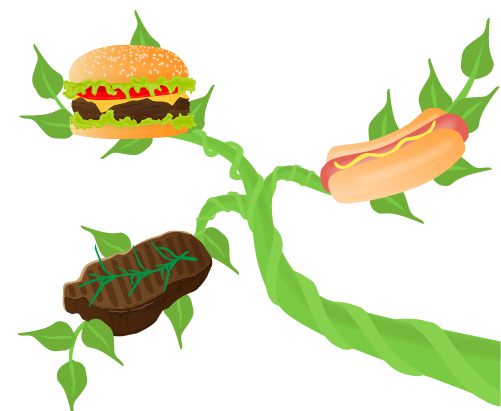A person who eats only plant-based foods and dairy products is called a vegetarian. A person who doesn’t eat anything from an animal is called a vegan. In recent years, the number of vegetarians and vegans has increased around the world. What are the reasons for this trend?
Research tells us that fruits and vegetables are healthier for us than meat. Eating large portions of meat, especially red or processed meat, can lead to high blood pressure and heart disease. Many people believe they need to eat meat because it contains much more protein than plants. While it is true that meat contains more protein than vegetables or fruit, some experts have pointed out that the human body can get all the protein it needs without eating meat. What’s more, some research has also found that the body runs more efficiently on a plant-based diet, because such a diet decreases weight and improves stamina. This has led many athletes to choose a vegetarian or vegan lifestyle.
However, being vegetarian or vegan doesn’t automatically mean you are healthy. Certain vegetarian foods are extremely unhealthy because they are processed. For example, some meat-free burgers are not a healthy alternative to meat burgers. Companies add chemicals to meat-free burgers to preserve them and make them look more attractive. Real meat contains high levels of essential vitamins and minerals such as iron.
So, if you are wondering if one diet is better than another, it depends on what kinds of vegetables, other plants, and meat you’re eating. One major disadvantage to eating meat is its effect on the environment. Meat production uses a lot of water, creates harmful greenhouse gases, and destroys land. In contrast, growing plants creates more oxygen, which helps the environment. If everyone were to eat more vegetables and other plants and less meat, it would have a positive impact on the environment.
But what if you really enjoy eating meat or you have food allergies that prevent you from eating some plant-based foods? You can still help the environment. You need not completely avoid meat. Reducing the amount of meat in your diet and eating more fruits, vegetables, and grains more often will help.
